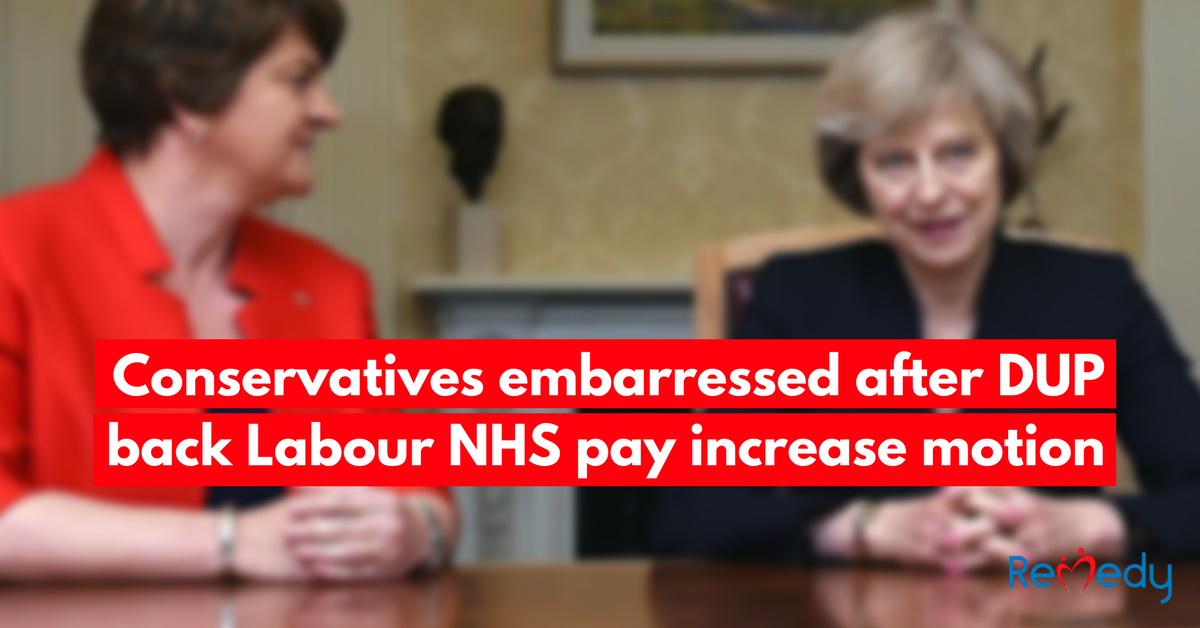Connecting linkedin

Remedy Nursing | Conservatives embarrassed as DUP back Labour NHS pay rise motion
Yesterday Theresa May and the Conservative government suffered their first major embarrassment in the House of Commons since the election, after the Democratic Unionist party backed Labour in there move towards increasing NHS pay and the opposition to a rise in tuition fees.
Labour’s motions passed with ease on Wednesday without the need to go to a vote after it was clear the government no longer had the majority to oppose the call for an end to the public sector pay cap for NHS workers.
Such a symbolic victory for Labour is a sign that there is no longer a majority in the House of Commons and austerity policies introduced by the Conservatives will not be introduced as easily. The DUP made it clear they backed the pay cap scrap and also was in favour of a second motion put forward by Labour to oppose a £250 increase in tuition fees which the Conservatives had passed by statutory instrument without a Commons debate despite protests from opposition parties.
Although this movement will have no direct effect on policy, it is a sign that the Labour party may be able to exploit future difference between Conservatives and the DUP to inflict more defeats on May which they find meaningful.
More important than the moral victory for Labour, is the importance this plays in the movement towards scrapping the pay cap for NHS nurses, something NHS nurses up and down the country have been fighting for in numbers. Ian Paisley of the DUP, said he hoped the vote would be a ‘clarion call’ from the commons for fairer pay in the near future.
This all comes after Downing Street signaled it will be ‘flexible’ over the public sector pay cap in the future after coming under huge pressure over the issue since the election, when the Conservatives lost their majority.
Although the PM initially held out against changing the policy, May will need DUP votes in order for the budget to get the approval of parliament this autumn, making the end to the pay cap a political necessity.
Earlier this week, No 10 said the pay cap would end for prison officers, who will get a 1.7% pay rise, and police, who get a 2% pay increase next year, while signalling that the overall cap of 1% is likely to be eased at the next budget.
After the RCN demonstration at Parliament Square last week, telling the Government to scrap the pay cap for nurses, surely they are next.
Unison, the trade union for public sector workers, said the passage of the motion showed the Conservatives had lost the argument on public sector pay.
“Ministers must know they’re in the wrong when even their quasi-coalition partners in the DUP have turned against them, and backed pay rises for NHS workers,” said Dave Prentis, the general secretary of Unison.
“Theresa May is losing her majority on public sector pay, and we know there are Conservative MPs sympathetic to our calls for real pay rises for all public service workers.
“It’s now time for the prime minister and the chancellor to deliver those proper pay rises, and not drag this out a day longer. We’ll be keeping up the pressure on all MPs until the vote, and until all public servants get the pay rises they deserve.”
